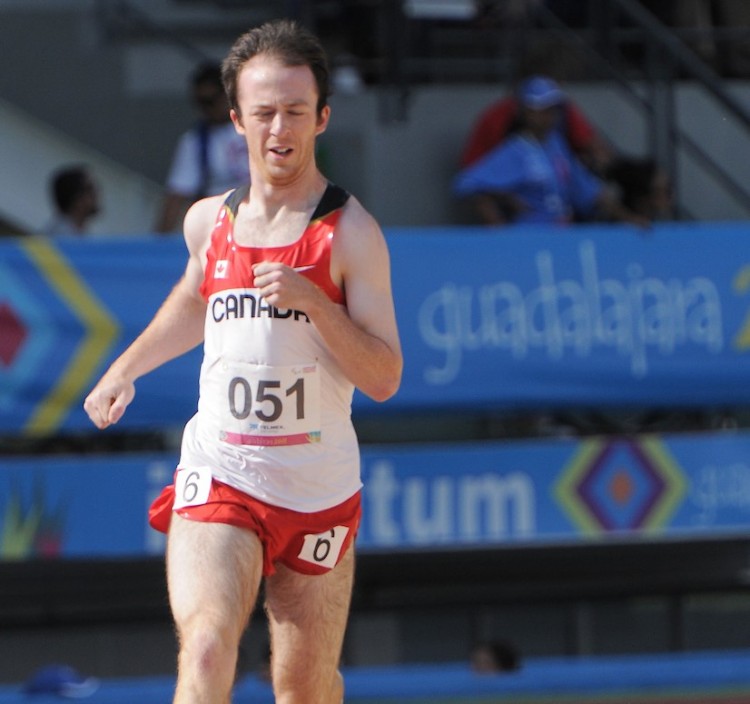I’m not sure I truly understood the power of positive role models, the power of seeing one’s self reflected back in popular culture, until I told my son about Shayne Dobson.

Shayne is a runner, originally from Campbellton, New Brunswick, who is in Rio as part of Canada’s Paralympic team. He’ll be running the 1,500m race. He’s quite the athlete, switching from tennis to track when he started university. It wasn’t long before he was the team captain and scouts began noticing his skills. Shayne was surprised, to say the least. He didn’t grow up running, or thinking he could qualify as a para-athlete. Shayne grew up with a motor delay on his left side, due to cerebral palsy.
My son is 3. He has a motor delay on his right side, due to cerebral palsy. Most people don’t realize he has this diagnosis. It’s not something that’s really visible. In fact, it wasn’t until the specialist had him run down the hospital hall that I finally saw it. He doesn’t naturally pump his right arm when running, and he catches the toes on his right foot a little bit too much. His gait is unsymmetrical. But other than that, he’s your average, slightly uncoordinated kid.
A kid who gave me the biggest smile he’s got when I told him about Shayne.
Honestly, until I saw that pure joy that spread across his face when I explained that someone just like him – only grown up – was going to race in Rio, I didn’t think he’d internalized that he’s different. He’s not as fast as his twin brother or older sister. He has to stop and think about kicking a soccer ball. He falls down more than an average preschooler. He’s slow on the stairs. But I know now he does notice these things, feels that difference.
Like Shayne, I would never have thought to use terms such as disabled or special needs to describe my son’s cerebral palsy. It’s a mild form of the condition, something I hadn’t even realized was possible until his diagnosis. But it is a motor impairment that distinguishes them from others. A distinction that allows Shayne to compete as a para-athlete.
As I told him more about the Paralympics, and that someone from here, someone his daddy has run with (more than 95 percent of Shayne’s competitive runs are done in non-para events, as well as his local training), was chosen as one of the fastest runners in the world, my son put his arms around me and squeezed tight.
I’ve never felt unrepresented by the world around me. I never really felt the need to find a particular role model to look up to. I didn’t clip news stories about my heroes. But I’ve started clipping stories about Shayne for my son. Because seeing Shayne excel in something he – and many others, including myself – might have dismissed as a possibility for him is inspiring. It’s empowering. It’s challenging my perception of what I think my son is capable of, and I can’t thank Shayne enough for that.
My husband and I tend to joke between ourselves that the only thing that our son’s diagnosis really affects is his athletic ability – and he wasn’t born with great genes for that, either. But I guess I need to rethink saying these things. Because he could be just like Shayne. It’s not up to me to place these limits on him. I’d never tell him he couldn’t do something, but I also never would have thought one day he could race in Rio. Now I know he can do that, too.
Follow this journey on Pickle Planet Moncton.

